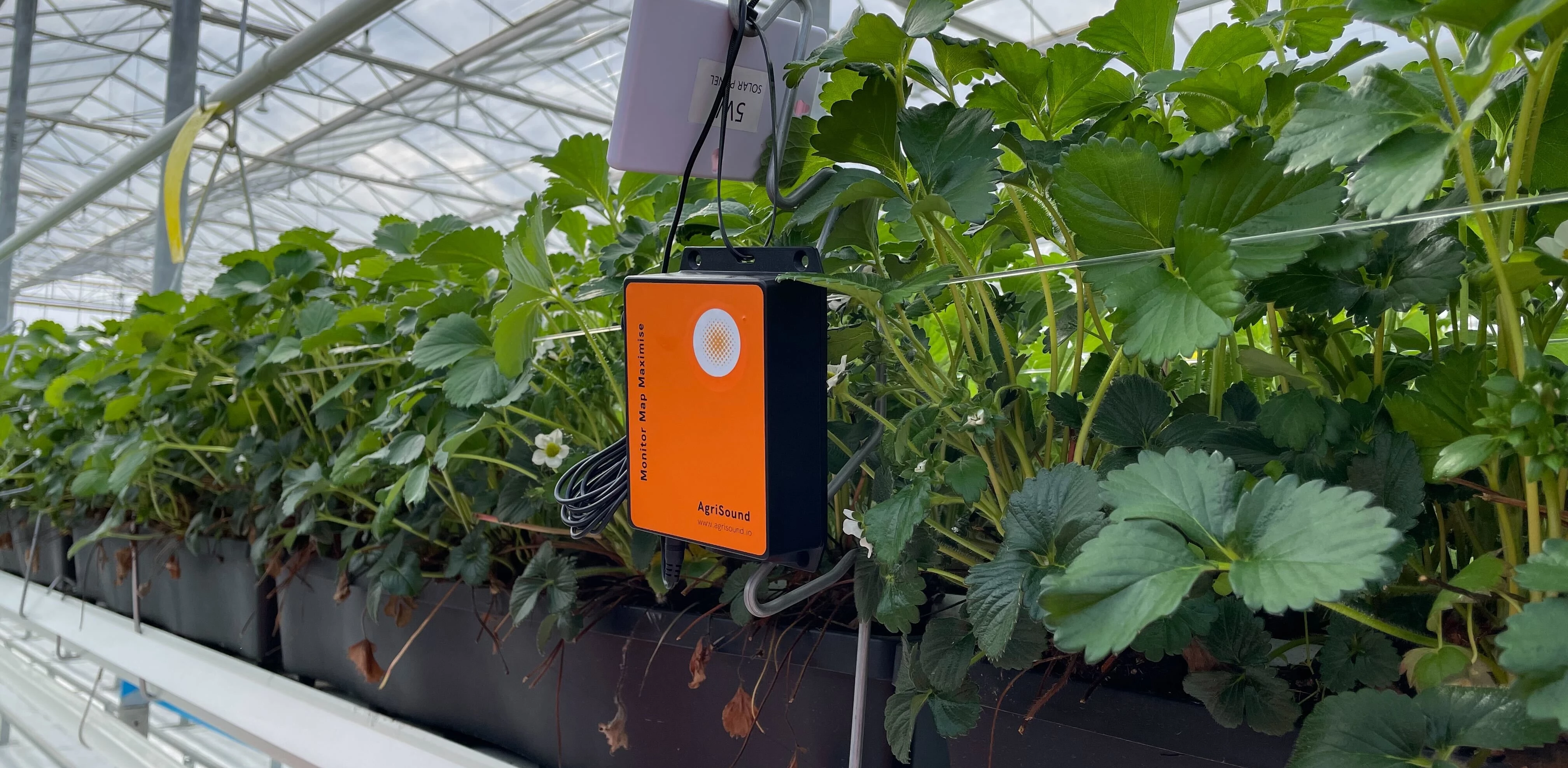
Pollination experts create a buzz in farming with Dyson Farming installations
AgriSound, a company specialising in insect conservation and pollination, has installed a number of its innovative listening devices at Dyson Farming’s Carrington site in the UK.
The biodiversity experts, based in York, support the conservation of bees and other insects through the use of specially developed devices which combine acoustic technology and environmental sensors to monitor bee and other pollinator populations remotely through an app available on any smart device.
These innovative, low cost monitoring systems have been developed by scientists to interpret nature’s noises to help maintain and maximise pollination, necessary for the survival of future pollinators, farms, gardens and the wider planet.
AgriSound has installed a number of new trial devices on the Carrington site, which will feature in Dyson Farming’s industrial scale strawberry glass houses and across their outdoor fields as part of the farming expert’s own biodiversity objectives.
As part of the trial, AgriSound will be working closely with Dyson Farming over the next few weeks to monitor the presence of bees and other pollinators on their site, with the view of expanding operations moving forward.
Edward Ford, Technical Agronomist of Dyson Farming, said: “As soon as we spoke to the team at Agrisound we were impressed by their passion for tackling the challenges of biodiversity and by their innovative methods of achieving this, it very much aligns with our ethos.
“These innovative devices installed at Carrington will act as a valuable tool for us to learn about the health of the environment in our greenhouses and fields for pollination, which remains a vital cog in helping our ecosystem thrive. We also look forward to contributing to the future development of this technology”.
Casey Woodward, founder & CEO of AgriSound, added: “It’s terrific to be able to partner with Dyson Farming and trial our devices on one of their sites. Dyson Farming shares our passion for promoting the merits of the natural environment and implementing the monitoring technology will help us gain a good understanding of the health of pollinators on such big commercial landscapes.
“I have no doubt that this will be hugely beneficial in helping us understand the optimal setting for pollination in a farming environment, which, in turn, will play a big part in our wider efforts to protect our declining insect population and boost biodiversity.”
Looking to promote your product/service to SME businesses in your region? Find out how Bdaily can help →
Enjoy the read? Get Bdaily delivered.
Sign up to receive our popular Yorkshire & The Humber morning email for free.








 Raising the bar to boost North East growth
Raising the bar to boost North East growth
 Navigating the messy middle of business growth
Navigating the messy middle of business growth
 We must make it easier to hire young people
We must make it easier to hire young people
 Why community-based care is key to NHS' future
Why community-based care is key to NHS' future
 Culture, confidence and creativity in the North East
Culture, confidence and creativity in the North East
 Putting in the groundwork to boost skills
Putting in the groundwork to boost skills
 £100,000 milestone drives forward STEM work
£100,000 milestone drives forward STEM work
 Restoring confidence for the economic road ahead
Restoring confidence for the economic road ahead
 Ready to scale? Buy-and-build offers opportunity
Ready to scale? Buy-and-build offers opportunity
 When will our regional economy grow?
When will our regional economy grow?
 Creating a thriving North East construction sector
Creating a thriving North East construction sector
 Why investors are still backing the North East
Why investors are still backing the North East